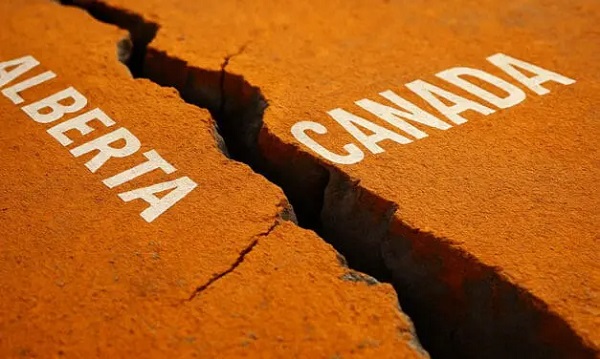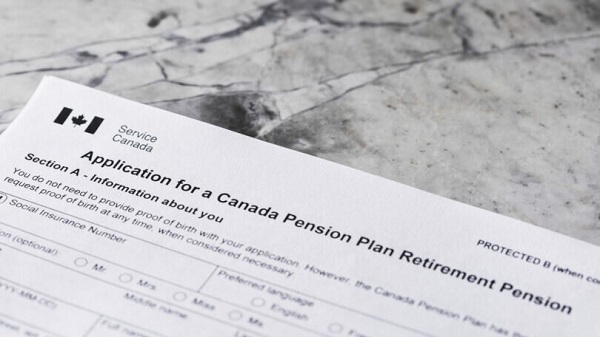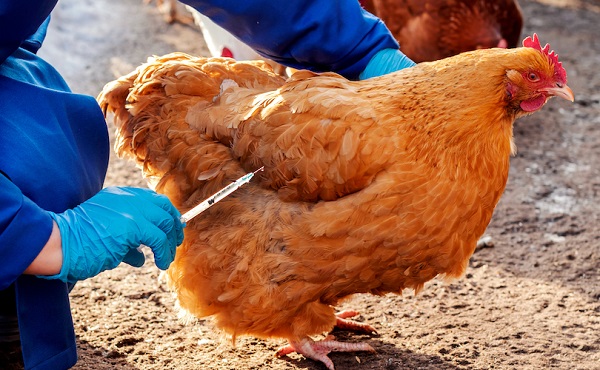Alberta
Provincial pension plan may mean big savings for Albertans

From the Fraser Institute
By Tegan Hill
Amid a growing separatist movement in Alberta, a recent poll commissioned by the Smith government found that 55 per cent of Albertans would vote to replace the “Canada Pension Plan (CPP) with an Alberta Pension Plan that guaranteed all Alberta seniors the same or better benefits.” That’s a massive surge in support since last year when support for a provincial plan was approximately 22 per cent. And while there are costs and benefits to leaving the CPP, one thing is clear—Albertans could see savings under a provincial pension plan.
First, some context.
From 1981 to 2022 (the latest year of available data) Alberta workers contributed 14.4 per cent (on average) of total CPP payments while retirees in the province received only 10.0 per cent of the payments, due mainly to the province’s relatively high rates of employment, higher average incomes and younger population (i.e. fewer retirees).
Over that same period, Albertans’ net contribution to the CPP—the amount Albertans paid into the program over and above what retirees in Alberta received in CPP payments—was $53.6 billion. That’s more than six times more than British Columbia, the only other province that paid more into the CPP than retirees in the province received in benefits.
Some analysts argue that the surge in support for a provincial pension plan in Alberta is a result of strategic wording by the Smith government, specifying that seniors would be guaranteed the same or better benefits than under the current CPP.
It’s true, the wording of a poll question can impact the results. But according to the federal legislation that governs the CPP, any province that wishes to withdraw from the CPP in favour of a provincial plan must provide comparable benefits.
And in fact, several analyses show that due to Alberta’s demographic and economic factors, Alberta workers would receive the same retirement benefits under a provincial pension plan but pay lower contribution rates compared to what they currently pay, while contributions rates would have to increase for Canadians outside Alberta (excluding Quebec) to maintain the same benefits under the CPP.
More specifically, according to a report commissioned by the Smith government, Alberta’s contribution rate, which is effectively a tax taken off paycheques, would fall from the base CPP contribution rate (9.9 per cent) to an estimated 5.85 per cent under a provincial pension plan. That would save each Albertan up to $2,850 in 2027 (the first year of the hypothetical Alberta plan). Again, this lower contribution rate (i.e. tax) would deliver the same benefit levels in Alberta as the current CPP.
Even under more conservative assumptions, Albertans would still pay a lower contribution rate while receiving the same benefits. According to economist Trevor Tombe’s estimate, Alberta’s contribution rate would drop to 8.2 per cent and save Albertan workers approximately $836 annually.
Support for a separate provincial pension plan is on the rise. And Albertans should know that under an Alberta plan, due to demographic and economic factors, they could pay a lower contribution rate yet receive the same level of benefits.
Alberta
Jann Arden’s Rant Will Only Fuel Alberta’s Separation Fire

From the Frontier Centre for Public Policy
By Lee Harding
In a fiery takedown of Alberta sovereigntists, Jann Arden may have poured gas on the sovereignty fire instead of dousing it. Lee Harding argues that her vulgar swipe ignored Alberta’s raw deal in Confederation, from lopsided equalization to federal overreach, and only deepens Western alienation. Rather than shaming Albertans into silence, her outburst might push them closer to the exit.
The singer’s foul-mouthed tirade won’t shame Alberta into silence. It’ll only push the province further toward the door
Jann Arden’s recent tirade against sovereigntist Albertans will probably do more to motivate them than set them back.
In an online rant, the Calgary-born-and-raised singer lowered public discourse a few notches.
“Hey, Alberta. Hey, you bunch of fu-king separatist wackos. How you doing? Feeling good about yourselves? You’re an embarrassment to this country. Everything you have, everything that you have enjoyed, cherished and benefited from, comes from being part of one of the greatest countries on the planet.”
Ha! Arden only embarrassed herself with her rudeness and ignorance.
Canada has been milking Alberta for a long time. In a 2024 study, the Fraser Institute showed that from 2007 to 2022, Albertans contributed $244.6 billion more in taxes and other payments to the federal government than they received in federal spending, more than five times as much as British Columbians or Ontarians. The other seven provinces were net takers.
Alberta is carrying Canada’s load by doing many things right, only to get zero respect and little benefit in return. For the past 10 years, Ottawa has done everything it can to undermine the energy sector through regulation and taxation, and encroach on provincial jurisdiction through legislation. Rather than feeding and protecting the goose that lays the golden eggs, it would rather pluck out its feathers.
The imbalance is nothing new. Since Confederation, most Canadian provinces have enjoyed jurisdiction over their natural resources. However, Alberta and Saskatchewan didn’t get that until 1930. When equalization began in 1957, Alberta received payments for eight years and never again. Quebec has been paid every year.
Ottawa went the route of more taxation, programs and debt, while Alberta took a more conservative approach. Its capacity to spend rose and fell with the price of oil. Just when Alberta hit another good wave, Ottawa launched the National Energy Program in the early 1980s—just to remind them who ruled the country and to whose benefit. Alberta got reduced profits and Eastern Canadians got cheap gas.
Alberta has been stuck in an abusive relationship for a long time and is wondering if it wouldn’t be better to be on her own. In the background is another suitor named Donald Trump, who would relieve Alberta of those pesky equalization payments and onerous regulations. The province would become the “cherished 51st state” instead of some western challenger to Central Canadian dominance that always needs to be put in its place.
Arden can’t see any of this. And her vitriol does nothing to make Albertans want to stay.
“You guys have your head so far up your as-es that you obviously can’t see what pri-ks you are,” Arden ranted. “The way you are treating your fellow citizens, your fellow Canadians, you guys are a bunch of creepy little pri-ks…
“Alberta will never separate from Canada. It’s never going to happen because people like me are going to stand up, throw their shoulders back, and keep fu-king yelling and keep standing up for what I know is right.”
Oh? Should Albertans stay because an insulting singer inspires a screaming mob? Will they suddenly find gratitude?
No. Abused Albertans have had enough. Their wants are not only reasonable, they’re good and fair policy. Canadians and their federal government should treat Alberta with proper respect, care about its grievances and feelings, and appreciate how they’d be a whole lot worse without her.
Lee Harding is a research fellow for the Frontier Centre for Public Policy.
Alberta
How Trump and Alberta might just save Canada

This article supplied by Troy Media.
 By Our View
By Our View
Canada faces a reckoning as Trump and Alberta disrupt long-held national assumptions
It may sound counterintuitive, but U.S. President Donald Trump and Alberta Premier Danielle Smith might be doing more to strengthen Canadian unity and prosperity than anyone in Ottawa.
Both are forcing a broken system long overdue for reform to face its flaws—Trump from the outside, Alberta from within. Trump’s revived protectionism is pushing Canada to confront its economic dependence on the United States, while Alberta’s bold demands are exposing the structural weaknesses of Canadian federalism. This unlikely convergence of pressure could lead to reform that strengthens the nation.
Trump’s renewed imposition of tariffs on Canadian imports, including a 25 per cent levy on most goods and a 10 per cent tariff on energy products, has
reignited trade tensions between the two nations. Trump has done this before: his 2018 tariffs on Canadian steel and aluminum sparked a brief but damaging trade war. His new measures are already disrupting industries reliant on crossborder supply chains, particularly in critical minerals.
However, there is a significant caveat: goods that comply with the United States-Mexico-Canada Agreement (USMCA)—the trade deal that
replaced NAFTA—are exempt from these tariffs. This exemption, initially set to expire on April 2, 2025, has been extended indefinitely, providing relief to industries that meet the agreement’s rules of origin. For example, auto parts manufactured in Canada that comply with USMCA standards are exempt from the newly announced duties.
Even with these carve-outs, the broader trade friction remains. This tension could be just what Canada needs. An unreliable U.S. trade partner may finally push Canadian policymakers to diversify markets, boost productivity and reduce our long-standing dependence on a single customer. The pain may be temporary, but the lessons could be permanent.
Meanwhile, Alberta is making it clear that business as usual will no longer be tolerated. Smith has issued a wide-ranging list of demands, including a repeal of Bill C-69—often called the “no more pipelines” bill by critics—which imposed stricter federal reviews on major energy projects; freedom to develop oil and gas resources without federal emissions caps; and the ability to opt out of industrial carbon taxes and net-zero vehicle mandates.
Some critics call Alberta’s stance reckless or anti-environment. But behind the rhetoric lies a growing frustration with a system that penalizes the very provinces driving Canada’s economy. Alberta isn’t seeking favours—it’s demanding fairness. If Ottawa fails to respond, the province is prepared to hold an independence referendum. That’s no longer an idle threat.
Canada’s deeper problems go well beyond Alberta. Interprovincial trade barriers fragment our economy. Energy infrastructure is blocked or stalled. And the equalization program sends billions to provinces that refuse to develop their own resources. Equalization is meant to ensure all provinces can deliver comparable public services, but the formula often penalizes growth-oriented provinces like Alberta while rewarding inaction. For decades, we’ve watched opportunity slip through our fingers, often by our own design.
External and internal forces are now creating the urgency we’ve lacked. Canadians are increasingly asking why internal trade isn’t as free as external
trade. Support for pipelines and energy independence is growing, even in provinces that previously opposed them. With global instability rising, secure
access to our own energy and markets is no longer optional—it’s essential.
It’s also hard to justify Quebec receiving $13 billion annually while banning fracking and refusing to develop its shale gas. The equalization formula discourages innovation, investment and self-reliance in recipient provinces. That’s not national solidarity—it’s economic dead weight.
This moment may feel tense, even dangerous. But real progress often begins with discomfort. Much like a labour negotiation or a market correction, shortterm conflict can lead to long-term renewal.
Canada has two choices: continue muddling along, or use this moment to reset and rebuild. That means cutting internal trade barriers. It means modernizing equalization. It means saying yes to energy infrastructure that strengthens national sovereignty. And above all, it means recognizing that the West’s prosperity is Canada’s prosperity.
Trump isn’t acting with Canada’s best interests in mind. Neither is Alberta trying to dismantle the country. But both are forcing us to look in the mirror. If we take this opportunity seriously, we may come out of it with a stronger, more selfreliant and united Canada.
Troy Media empowers Canadian community news outlets by providing independent, insightful analysis and commentary. Our mission is to support local media in helping Canadians stay informed and engaged by delivering reliable content that strengthens community connections and deepens understanding across the country.
-

 Addictions6 hours ago
Addictions6 hours agoMan jailed for trafficking diverted safer supply drugs, sparking fresh debate over B.C. drug policies
-

 Alberta8 hours ago
Alberta8 hours agoHow Trump and Alberta might just save Canada
-

 Business7 hours ago
Business7 hours agoThe Liberals Finally Show Up to Work in 2025
-

 Alberta6 hours ago
Alberta6 hours agoJann Arden’s Rant Will Only Fuel Alberta’s Separation Fire
-

 Banks4 hours ago
Banks4 hours agoCanada Pension Plan becomes latest institution to drop carbon ‘net zero’ target
-

 Bruce Dowbiggin3 hours ago
Bruce Dowbiggin3 hours agoCaitlin Clark Has Been The Real Deal. So Her WNBA Rivals Hate Her
-

 Daily Caller5 hours ago
Daily Caller5 hours agoThere’s A Catch To California’s Rosy Population Stats
-

 Health2 days ago
Health2 days agoRFK Jr. cancels $700 million mRNA bird flu ‘vaccine’ contract with Moderna over safety concerns



